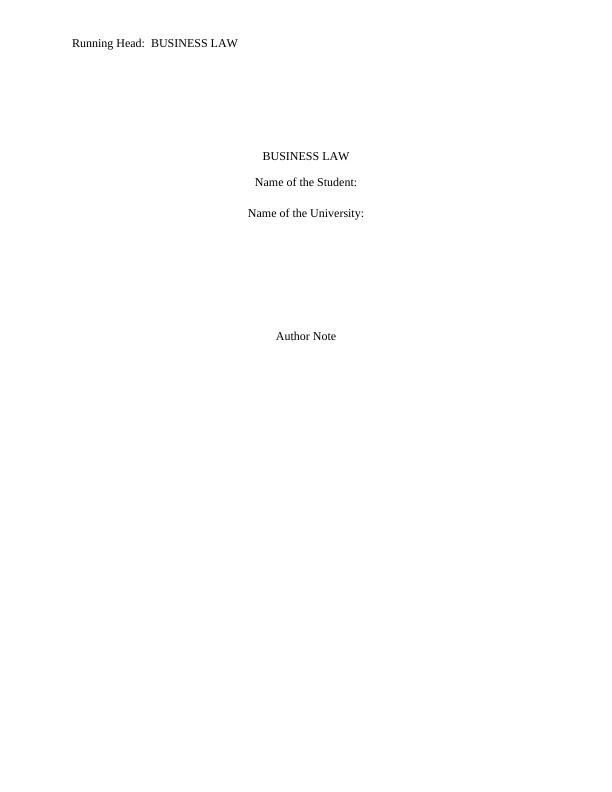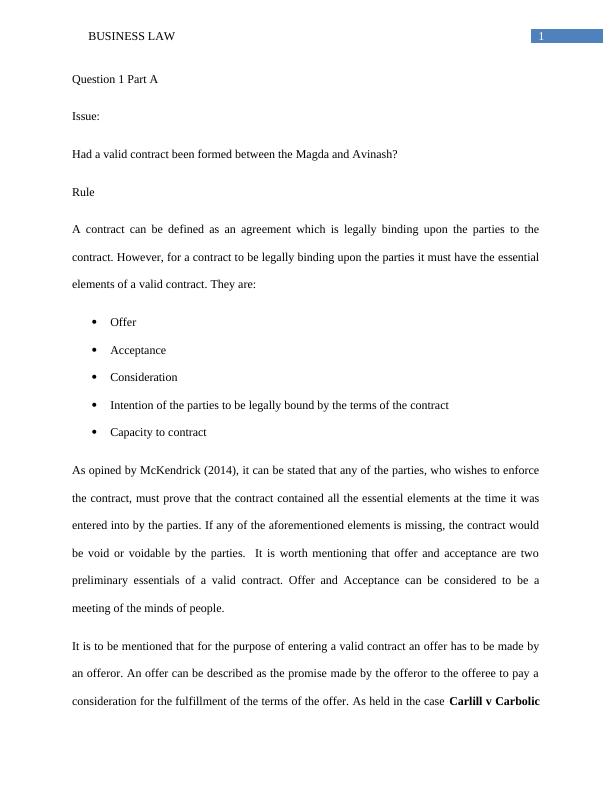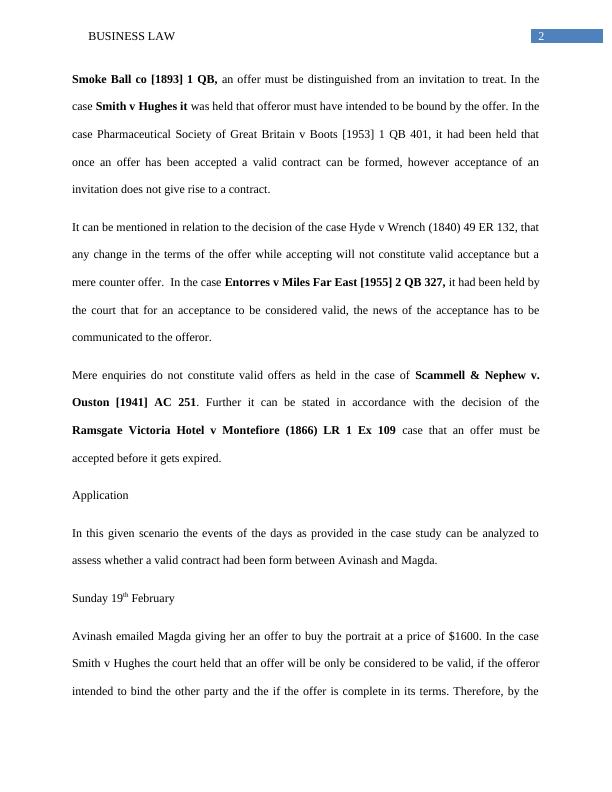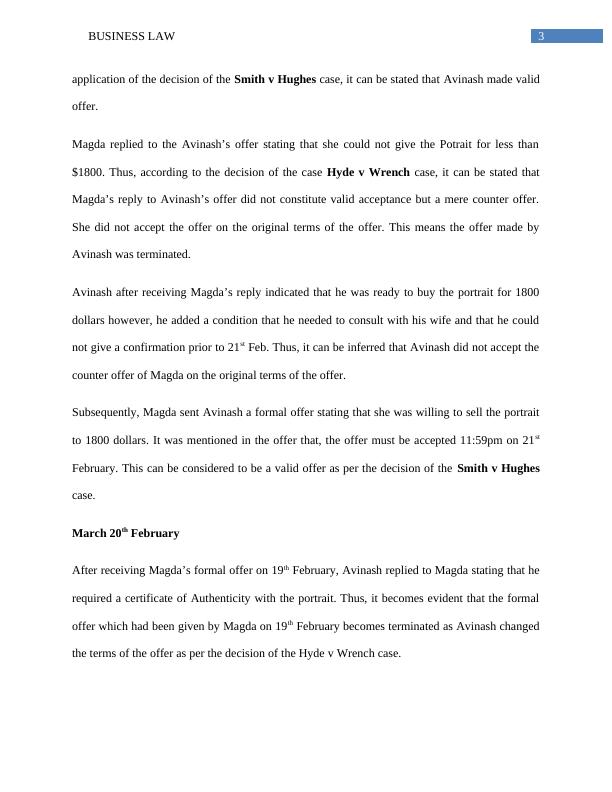Business Law: Validity of Contracts and Consumer Guarantees
Answer questions 1 and 2 regarding a business law case involving a professional photographer selling limited edition prints on her website.
12 Pages2568 Words198 Views
Added on 2023-06-12
About This Document
This article discusses the essential elements of a valid contract, including offer, acceptance, consideration, and intention to be legally bound. It also explores consumer guarantees under Australian Consumer Law and the consequences of breaching them. Additionally, it examines the validity of consideration in contracts and the potential consequences of invalid contracts and guarantees.
Business Law: Validity of Contracts and Consumer Guarantees
Answer questions 1 and 2 regarding a business law case involving a professional photographer selling limited edition prints on her website.
Added on 2023-06-12
ShareRelated Documents
End of preview
Want to access all the pages? Upload your documents or become a member.
Business Law Issues : Assignment
|10
|2318
|33
Business laws - Assignment
|10
|2351
|49
Business Law 2 Business Law Author Note
|12
|2492
|453
Business and Company Law - Assignment
|9
|2500
|76
Law of Contract: Assignment
|9
|2537
|50
Assignment on Busienss Law (pdf)
|10
|2463
|60




